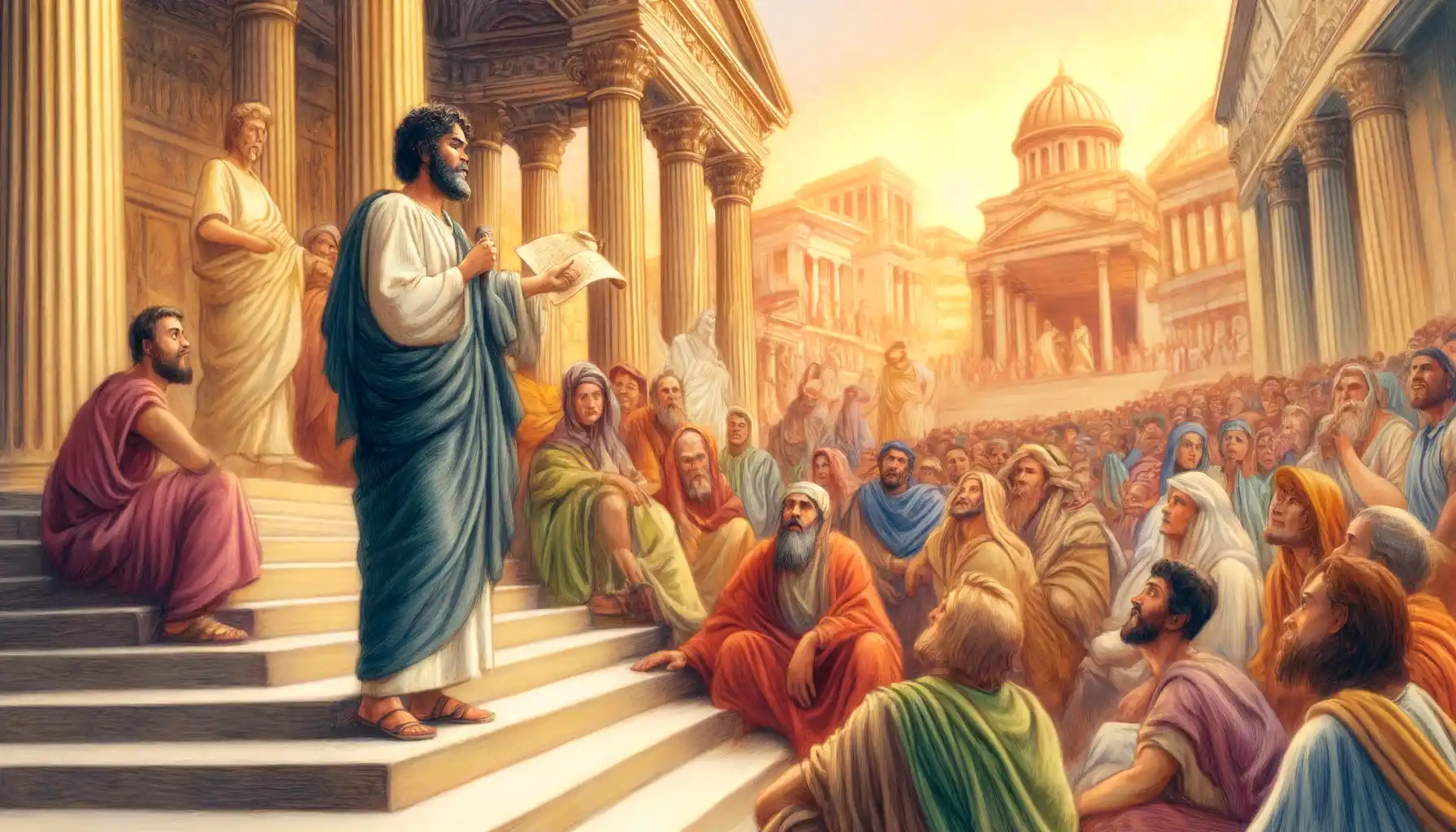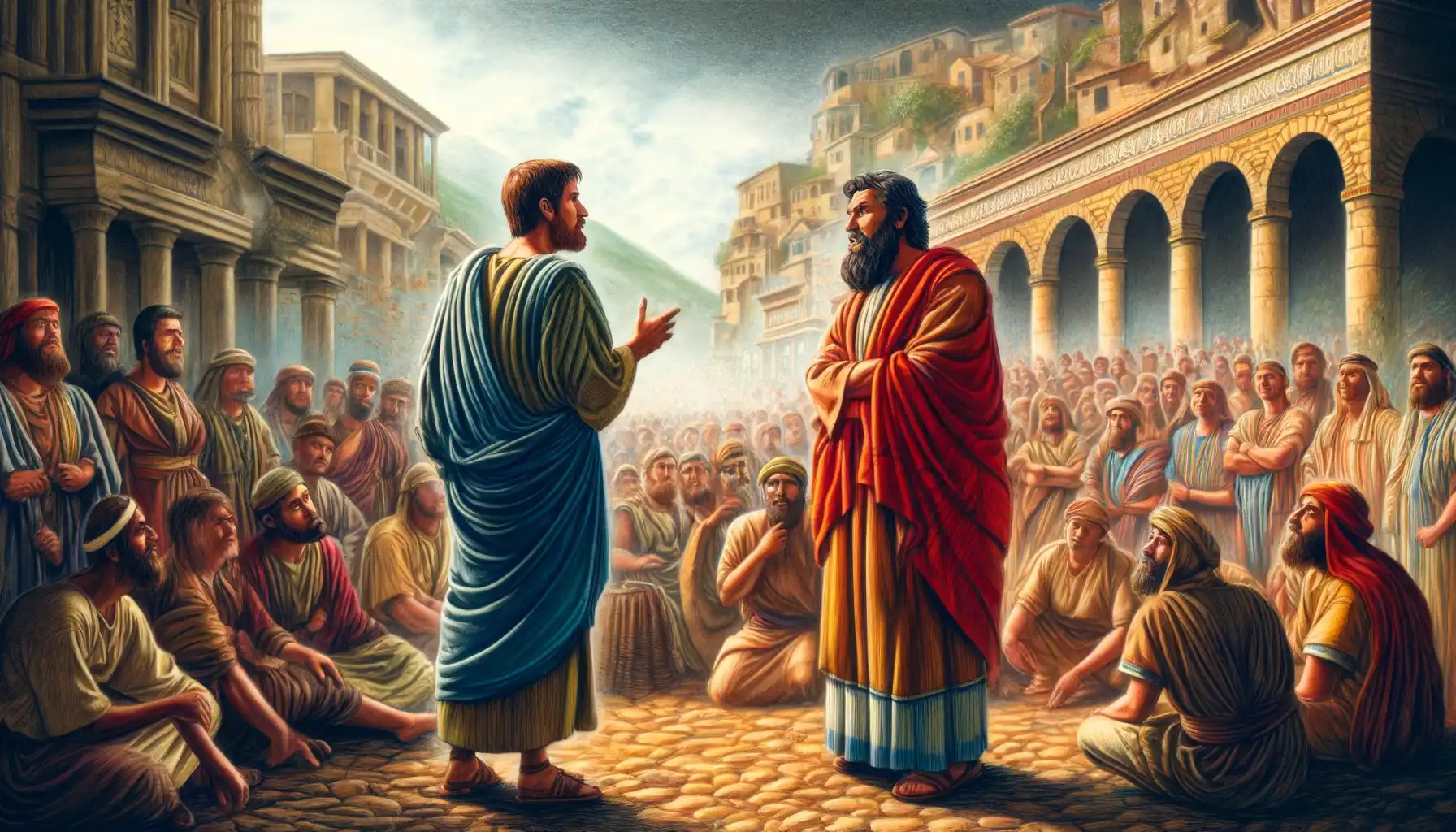Paul, originally known as Saul of Tarsus, was a major apostle to the Gentiles and a foundational figure in the establishment of Christianity, renowned for his dramatic conversion, extensive missionary journeys, and the authorship of many influential New Testament Epistles.
Genesis 8:20-21 depicts Noah building an altar and offering sacrifices of clean animals to God, who, pleased by the aroma, promises never again to curse the ground or destroy all living creatures, despite humanity’s inherent sinfulness, thus establishing a foundational moment of covenant and grace between God and mankind.
The Parable of the Laborers in the Vineyard in Matthew 20:1-16 illustrates the generosity of God’s grace, where all workers receive equal wages regardless of their start time.
The Book of 1 Peter offers enduring encouragement and exhortation to persecuted believers, emphasizing their identity in Christ and calling them to live holy lives, rooted in hope and grounded in the grace of God.
The Letter to Philemon exemplifies Paul’s call for reconciliation and forgiveness, urging Philemon to receive his runaway slave, Onesimus, not as a mere servant, but as a beloved brother in Christ.
In the Book of Titus, the Apostle Paul underscores the necessity of appointing qualified elders to maintain order and guide the faithful, emphasizing the significance of sound doctrine and good works in fostering a vibrant and steadfast Christian community.
The Book of Ephesians is rich in doctrinal insights and practical advice, emphasizing the exalted nature of the Church and the conduct expected of its members.
The Book of Galatians is fundamental in Christian theology for its clear articulation of the gospel of grace and its vigorous defense of the doctrine of justification by faith. It remains a powerful source of theological insight and ethical guidance.
The Book of Romans is foundational for understanding Christian doctrine, particularly Pauline theology, and remains a cornerstone for theological reflection and discourse within Christianity.










